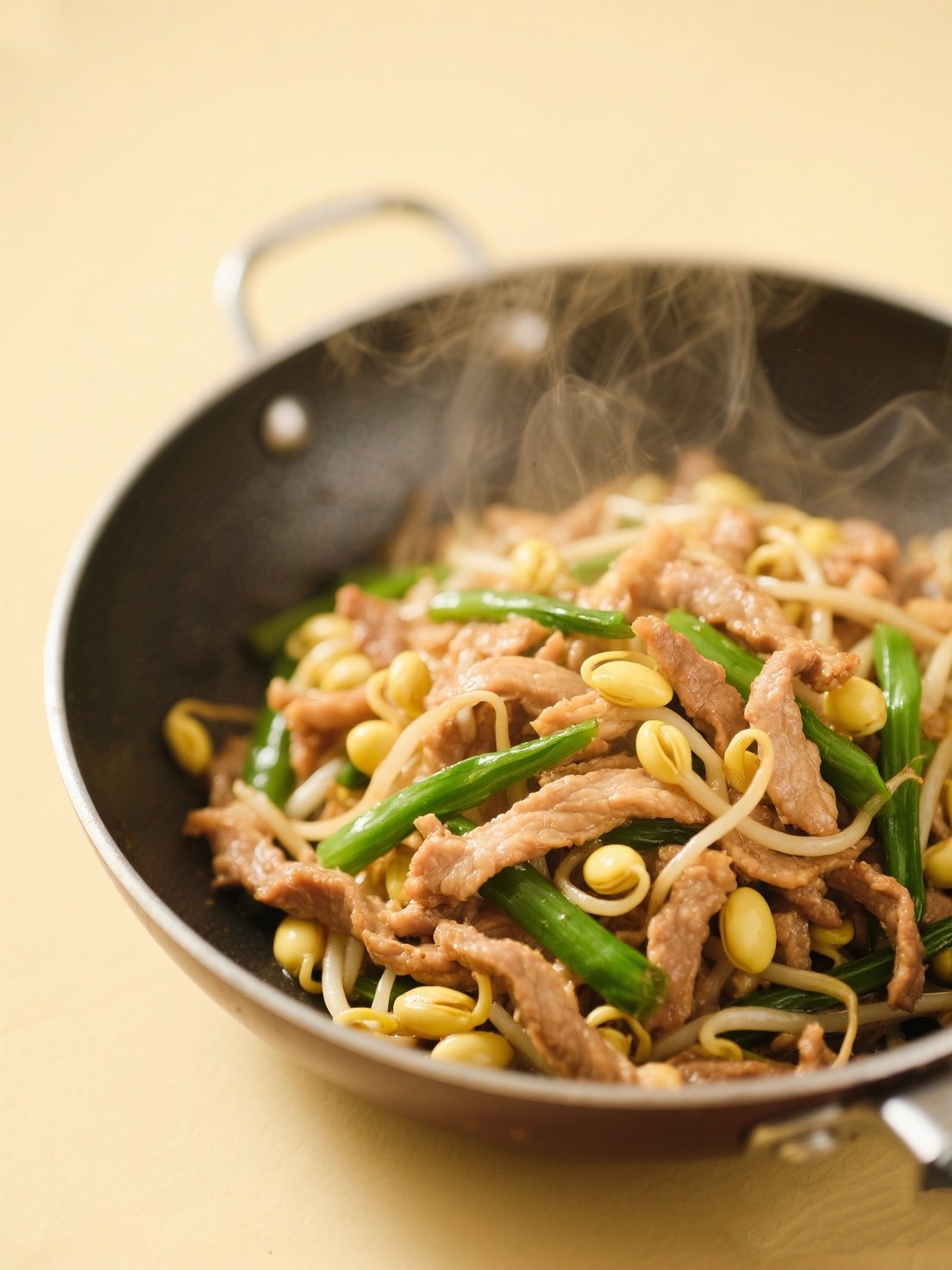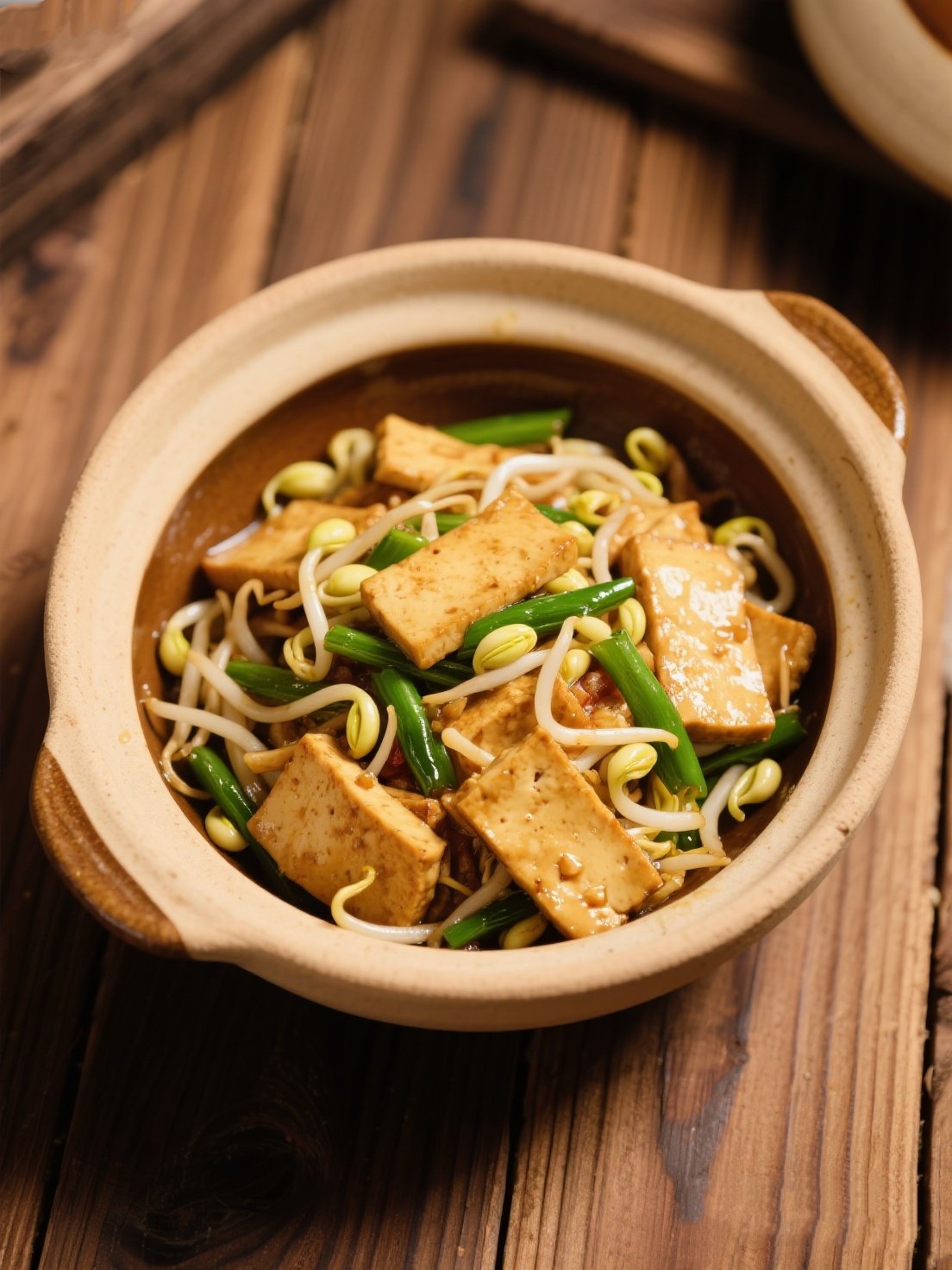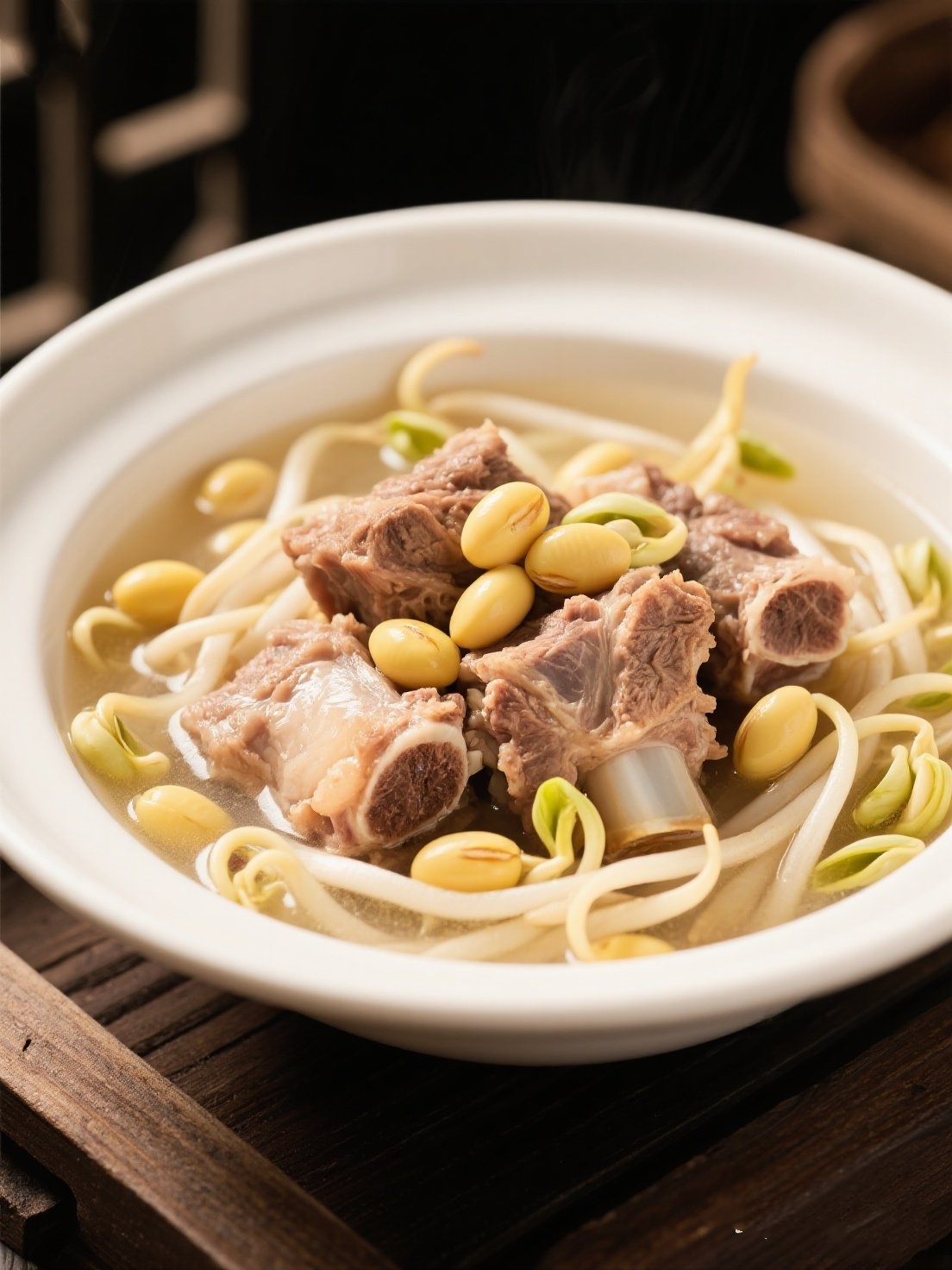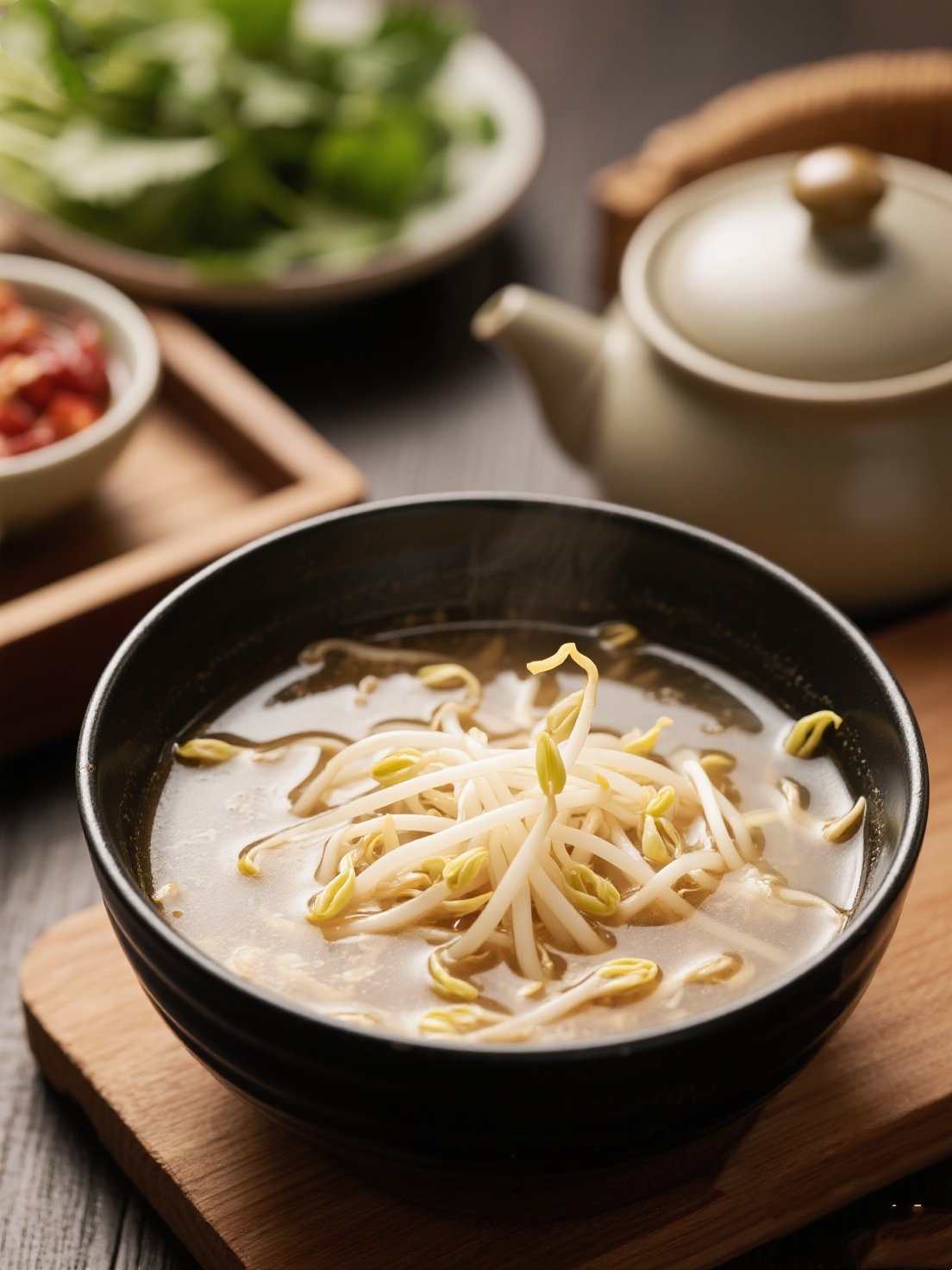The Nutritional Value of soybean sprouts
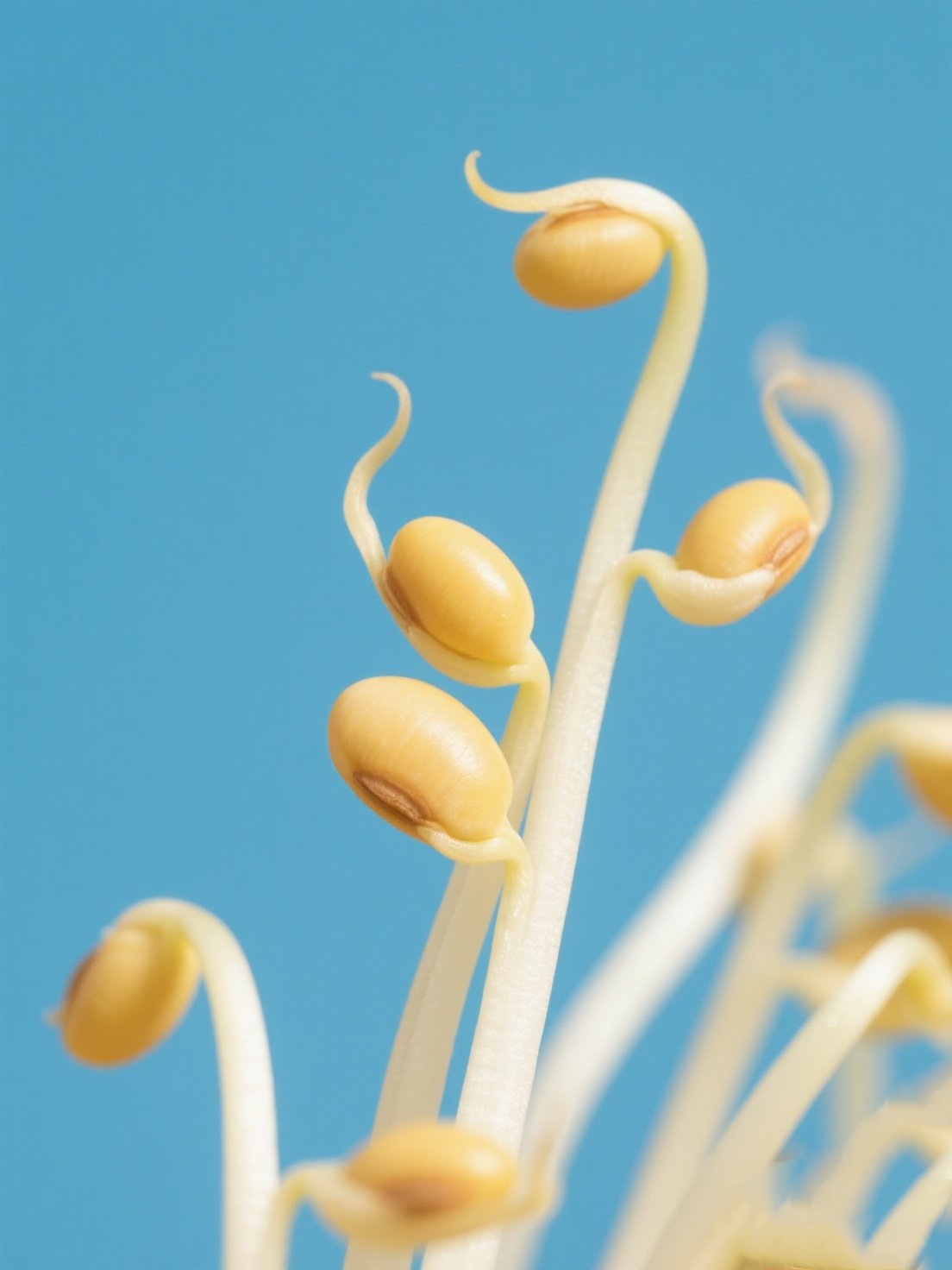
Nutritional Value (per 100g)
- Protein: 3.1g – rich plant-based protein source
- Fiber: 1.8g – supports digestive health
- Vitamin C: 14mg – boosts immunity
- Vitamin K: 27.9µg – essential for blood clotting
- Folate (B9): 62µg – important for cell function and development
- Low Calories: Only 30 kcal – ideal for weight management
Health Benefits
- ✔ Supports heart health through fiber and potassium
- ✔ Promotes bone health with vitamin K and calcium
- ✔ Aids digestion with natural enzymes and fiber
- ✔ Helps in detoxification due to high chlorophyll content
- ✔ May reduce inflammation and oxidative stress
Tip: Choose firm, pale yellow sprouts with no sliminess or strong odor.
How to Grow soybean sprouts
1
Seed Selection
- Quality: Use organic, non-GMO mung beans
- Quantity: Start with ½ cup beans for a small batch
2
Soaking
- Time: Soak overnight (8–12 hours) in clean water
- Purpose: Activates germination process
3
Draining & Rinsing
- Frequency: Rinse twice daily with cool water
- Environment: Keep in a dark, warm place (20–25°C)
4
Sprouting Process
- Time: 3–5 days until sprouts reach 1–2 inches
- Color: Yellow due to limited light exposure
5
Final Rinse & Storage
- Before Eating: Final rinse to remove hulls
- Storage: Refrigerate in breathable bag for up to 5 days
6
Cooking Tips
- Raw: Add to salads and sandwiches
- Cooked: Stir-fry, steam, or add to soups and noodles
Fun Fact: Yellow mung bean sprouts are grown without sunlight to prevent greening.
Pro Tip: Always wash thoroughly before use to remove bacteria risk from sprouting process.
How to Sprout Mung Beans at Home
Watch this simple guide to grow your own freshSoybean sprout
Global Dishes with Soybean sprout
From stir-fries to spring rolls – explore how cultures enjoy these crunchy sprouts!
Soybean sprout Recipe Tutorials
Learn to cook with Soybean sprout using these step-by-step videos.

